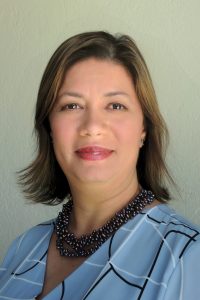In my years in academia, I have experienced both the successes and failures of several graduate students. Graduate school is an extremely difficult endeavor so, why do some students triumph and others don’t? There are many contributing factors, but one that strikes me as essential are the Universities support structures. Most universities provide support structures in different dimensions: research support, such as equipment, laboratories, travel, access to articles, among others; economic support, such as fellowships, scholarships, assistantships and payments; and emotional support structures. I will concentrate my blog post on the latter one.
The first experience I had with graduate school was in upstate New York. Back then, I was considered an international graduate student. One of the documents that the International Students Office provided to all international grads in the welcoming packet was a summary of resources. This documents’ shape was in the form of an accordion and each one of the tabs provided information on health services, pharmacies, supermarkets, doctors, clothing tips, driving and cars, winter, rules and regulations of the town, customs, festivals, activities, places for relaxation, among others. It was a well prepared resource, very handy, and its information was extremely valuable. It took out the guesswork from students and lowered our stress levels. The university also provided graduate students close to our housing quarters who would be available to guide us whenever a question was asked.
Once I started my PhD, I experienced another type of emotional support structure provided by the graduate school. An expert on writing dissertation offered to all MS and PhD students a training on managing life and succeed as graduated student. She provided guides on time management, writing, resting, avoiding overworking, organization and so many valuable tips that were extremely effective. In addition, the university coordinated diverse social activities which allowed networking and relaxation opportunities.

Finally, when I became a faculty member, I was aware of a student organization at our institution that would provide ambassadors for new international students. These students would organize themselves to help incoming grads get settled, understand our culture, find housing, help them on arrival to the island and feel welcome. Unfortunately this organization is no longer in place so the process of adapting to the university takes much longer. The benefits of providing emotional support to graduate students are diverse: from having more productive and happier students to shorter graduation times.
From my perspective, institutions should self reflect on the climate and structures they provide for welcoming international graduate students. These structures not only benefit international students, but local students as well. When the academic community is a strong one, the research ecosystem becomes stronger.
Author and Invited Collaborator:

Dr. Santiago is a professor at the Electrical and Computer Engineering department, University of Puerto Rico, Mayaguez Campus (UPRM) where she teaches the Capstone Course in Computer Engineering. She received a Ph.D. degree in Electrical Engineering with a concentration in Computer Engineering from Michigan State University in 2003. She currently leads the Southeast Region of the Computing Alliance for Hispanic Serving Institutions (CAHSI). She has directed the Caribbean Celebration of Women in Computing conferences and in 2019 the first Explore CRC Puerto Rico conference to increase the participation of women in Computing. Dr. Santiago is an academic alliance member of the National Center for Women & Information Technology (NCWIT), lifetime member of SACNAS, senior member of the IEEE, a member of the ACM, and senior member of the Latinas in Computing (LiC) organization. Dr. Santiago has been awarded 2017 CRA-E Undergraduate Research Faculty Mentoring Award, 2008 Henaac Educator Award, 2008 Distinguished Computer Engineer of the CIAPR, and the UPRM Distinguished Alumni award.


